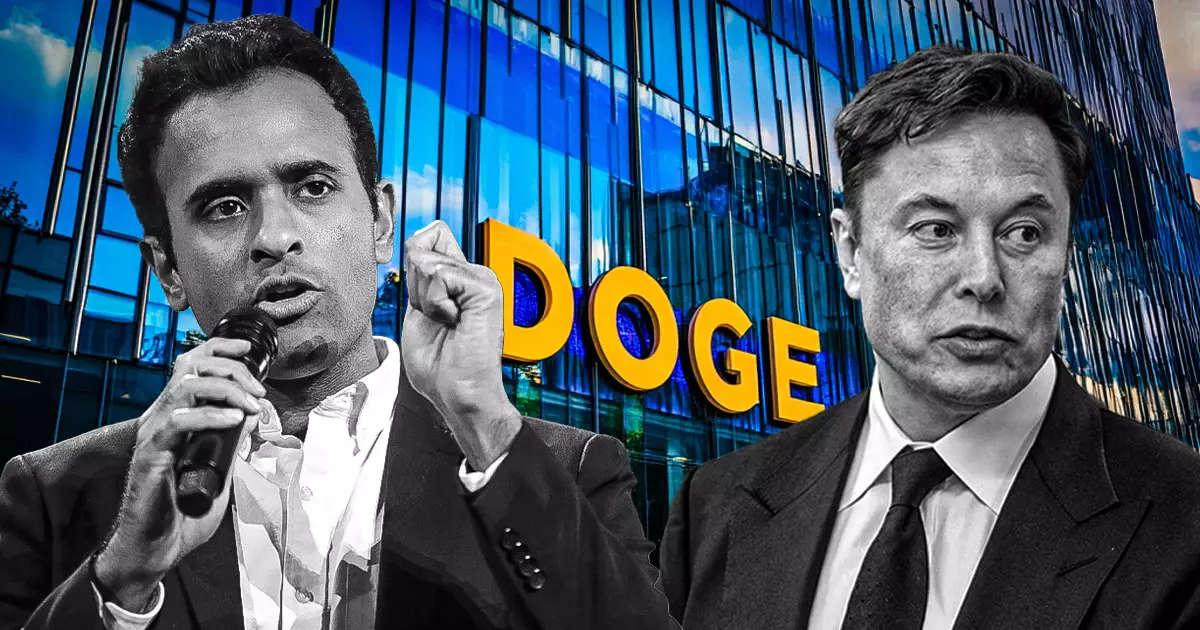In a surprising turn of events, U.S. President-elect Donald Trump has unveiled plans to establish the Department of Government Efficiency (DOGE), signaling a bold move to tackle bureaucratic waste within the federal government. Appointing prominent advocates of cryptocurrency, Elon Musk and Vivek Ramaswamy, to lead this new initiative demonstrates Trump’s intent to innovate governance in a contemporary manner. Announced on November 13 through his Truth Social platform, the overarching mission is to eliminate inefficiencies, reduce excessive regulations, and streamline spending as part of Trump’s broader “Save America” campaign.
The ambitious nature of this initiative has drawn comparisons to historical efforts such as the Manhattan Project, which underscores its significance in Trump’s vision. With the U.S. federal budget peaking at an astounding $6.5 trillion, DOGE aims to root out the “waste and fraud” that has plagued government spending. While the department is expected to function independently, it will maintain collaborative ties with both the White House and the Office of Management and Budget to help facilitate necessary structural reforms.
Trump’s announcement sets an intriguing timeline, aiming for tangible results by July 4, 2026—an important date that aligns with the 250th anniversary of American independence. This timeframe may invoke deeper patriotic sentiments, possibly galvanizing public support for the project.
The Role of Musk and Ramaswamy
Musk and Ramaswamy, both influential figures in the worlds of technology and politics, will undoubtedly inject fresh perspectives into this initiative. Musk has been a vocal supporter of Trump, actively participating in rallies and lending his celebrity status to bolster Trump’s campaign. Ramaswamy’s endorsement of Trump following his own exit from the presidential race adds to the Republican momentum. Their shared passion for cryptocurrency could enhance DOGE’s modern, tech-savvy image, setting a forward-thinking agenda for government reform that appeals to a wide demographic.
In a recent statement on social media platform X, Musk emphasized transparency as a vital component of DOGE’s operations, promising that the department would frequently update the public and welcome feedback on its initiatives. He proposed features such as a leaderboard detailing wasteful government expenditures, which could serve both educational and entertaining functions for the public. Ramaswamy echoed this commitment, suggesting the imminent rollout of a platform for citizen submissions aimed at identifying government excesses.
The choice to name the department DOGE has sparked excitement within the Dogecoin community, heavily influenced by its meme culture. Yet, this enthusiasm has not resonated favorably in the market; Dogecoin’s price dropped 10% following the announcement. Despite this fluctuation, observers speculate that Musk’s leadership role within DOGE could be a harbinger of positive developments for the cryptocurrency, particularly with a potential market uptick on the horizon.
Trump’s new initiative signifies a notable push toward greater governmental accountability. The involvement of Musk and Ramaswamy adds a novel angle to traditional governance, potentially setting a precedent for the integration of technological innovation within public institutions. How effectively DOGE can fulfill its objectives, however, remains to be seen, as it navigates the complexities of government reform in a rapidly changing political landscape.


Leave a Reply